Fleurs du Mal Magazine


Or see the index
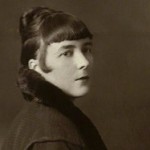
Katherine Mansfield
(1888 – 1923)
When I was a Bird
I climbed up the karaka tree
Into a nest all made of leaves
But soft as feathers.
I made up a song that went on singing all by itself
And hadn’t any words, but got sad at the end.
There were daisies in the grass under the tree.
I said just to try them:
“I’ll bite off your heads and give them to my little
children to eat.”
But they didn’t believe I was a bird;
They stayed quite open.
The sky was like a blue nest with white feathers
And the sun was the mother bird keeping it warm.
That’s what my song said: though it hadn’t any words.
Little Brother came up the patch, wheeling his barrow.
I made my dress into wings and kept very quiet.
Then when he was quite near I said: “Sweet, sweet!”
For a moment he looked quite startled;
Then he said: “Pooh, you’re not a bird; I can see
your legs.”
But the daisies didn’t really matter,
And Little Brother didn’t really matter;
I felt just like a bird.
Katherine Mansfield poetry
fleursdumal.nl magazine
More in: Archive M-N, Katherine Mansfield, Mansfield, Katherine
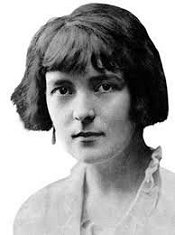
Katherine Mansfield
(1888 – 1923)
A Day in Bed
I wish I had not got a cold,
The wind is big and wild,
I wish that I was very old,
Not just a little child.
Somehow the day is very long
Just keeping here, alone;
I do not like the big wind’s song,
He’s growling for a bone
He’s like an awful dog we had
Who used to creep around
And snatch at things—he was so bad,
With just that horrid sound.
I’m sitting up and nurse has made
Me wear a woolly shawl;
I wish I was not so afraid;
It’s horrid to be small.
It really feels quite like a day
Since I have had my tea;
P’raps everybody’s gone away
And just forgotten me.
And oh! I cannot go to sleep
Although I am in bed.
The wind keeps going creepy-creep
And waiting to be fed.
Katherine Mansfield poetry
fleursdumal.nl magazine
More in: Archive M-N, Katherine Mansfield, Mansfield, Katherine
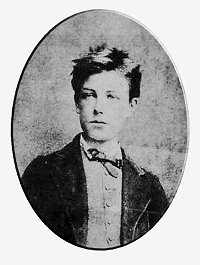
Arthur Rimbaud
(1854-1891)
Fêtes de la faim
Ma faim, Anne, Anne,
Fuis sur ton âne.
Si j’ai du goût, ce n’est guères
Que pour la terre et les pierres
Dinn ! dinn ! dinn ! dinn ! je pais l’air,
Le roc, les Terres, le fer.
Tournez, les faims ! paissez, faims,
Le pré des sons !
Puis l’humble et vibrant venin
Des liserons ;
Les cailloux qu’un pauvre brise,
Les vieilles pierres d’églises,
Les galets, fils des déluges,
Pains couchés aux vallées grises !
Mes faims, c’est les bouts d’air noir ;
L’azur sonneur ;
— C’est l’estomac qui me tire.
C’est le malheur.
Sur terre ont paru les feuilles :
Je vais aux chairs de fruit blettes.
Au sein du sillon, je cueille
La doucette et la violette.
Ma faim, Anne, Anne !
Fuis sur ton âne.
Arthur Rimbaud poetry
fleursdumal.nl magazine
More in: *Archive Les Poètes Maudits, Archive Q-R, Arthur Rimbaud, Rimbaud, Arthur, Rimbaud, Arthur
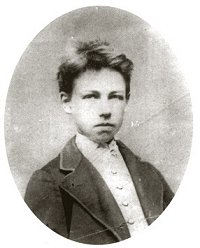
Arthur Rimbaud
(1854-1891)
Scènes
L’ancienne Comédie poursuit ses accords et divise ses Idylles :
Des boulevards de tréteaux.
Un long pier en bois d’un bout à l’autre d’un champ rocailleux où la foule barbare évolue sous les arbres dépouillés.
Dans des corridors de gaze noire suivant le pas des promeneurs aux lanternes et aux feuilles.
Des oiseaux des mystères s’abattent sur un ponton de maçonnerie mû par l’archipel couvert des embarcations des spectateurs.
Des scènes lyriques accompagnées de flûte et de tambour s’inclinent dans des réduits ménagés sous les plafonds, autour des salons de clubs modernes ou des salles de l’Orient ancien.
La féerie manœuvre au sommet d’un amphithéâtre couronné par les taillis, — Ou s’agite et module pour les Béotiens, dans l’ombre des futaies mouvantes sur l’arête des cultures.
L’opéra-comique se divise sur une scène à l’arête d’intersection de dix cloisons dressées de la galerie aux feux.
Arthur Rimbaud poetry
fleursdumal.nl magazine
More in: Archive A-B, Archive Q-R, Arthur Rimbaud, Rimbaud, Arthur
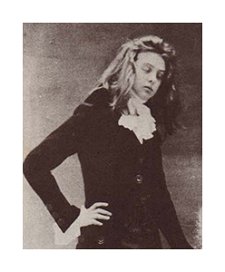
Renée Vivien
(1877-1909)
Je pleure sur toi…
À Madame L.D. M…
Le soir s’est refermé, telle une sombre porte,
Sur mes ravissements, sur mes élans d’hier…
Je t’évoque, ô splendide ! ô fille de la mer !
Et je viens te pleurer comme on pleure une morte.
L’air des bleus horizons ne gonfle plus tes seins,
Et tes doigts sans vigueur ont fléchi sous les bagues.
N’as-tu point chevauché sur la crête des vagues,
Toi qui dors aujourd’hui dans l’ombre des coussins ?
L’orage et l’infini qui te charmaient naguère
N’étaient-ils point parfaits et ne valaient-ils pas
Le calme conjugal de l’âtre et du repas
Et la sécurité près de l’époux vulgaire ?
Tes yeux ont appris l’art du regard chaud et mol
Et la soumission des paupières baissées.
Je te vois, alanguie au fond des gynécées,
Les cils fardés, le cerné agrandi par le k’hol.
Tes paresses et tes attitudes meurtries
Ont enchanté le rêve épais et le loisir
De celui qui t’apprit le stupide plaisir,
Ô toi qui fus hier la soeur des Valkyries !
L’époux montre aujourd’hui tes yeux, si méprisants
Jadis, tes mains, ton col indifférent de cygne,
Comme on montre ses blés, son jardin et sa vigne
Aux admirations des amis complaisants.
Abdique ton royaume et sois la faible épouse
Sans volonté devant le vouloir de l’époux…
Livre ton corps fluide aux multiples remous,
Sois plus docile encore à son ardeur jalouse.
Garde ce piètre amour, qui ne sait décevoir
Ton esprit autrefois possédé par les rêves…
Mais ne reprends jamais l’âpre chemin des grèves,
Où les algues ont des rythmes lents d’encensoir.
N’écoute plus la voix de la mer, entendue
Comme un songe à travers le soir aux voiles d’or…
Car le soir et la mer te parleraient encor
De ta virginité glorieuse et perdue.
Renée Vivien poetry
fleursdumal.nl magazine
More in: Archive U-V, Renée Vivien, Vivien, Renée
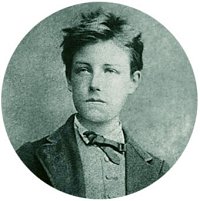
Arthur Rimbaud
(1854-1891)
Chant de guerre parisien
Le Printemps est évident, car
Du cœur des Propriétés vertes,
Le vol de Thiers et de Picard
Tient ses splendeurs grandes ouvertes !
Ô Mai ! quels délirants culs-nus !
Sèvres, Meudon, Bagneux, Asnières,
Écoutez donc les bienvenus
Semer les choses printanières !
Ils ont schako, sabre et tam-tam,
Non la vieille boîte à bougies
Et des yoles qui n’ont jam, jam…
Fendent le lac aux eaux rougies !
Plus que jamais nous bambochons
Quand arrivent sur nos tanières
Crouler les jaunes cabochons
Dans des aubes particulières !
Thiers et Picard sont des Éros,
Des enleveurs d’héliotropes,
Au pétrole ils font des Corots :
Voici hannetonner leurs tropes….
Ils sont familiers du Grand Truc !..
Et couché dans les glaïeuls, Favre
Fait son cillement aqueduc,
Et ses reniflements à poivre !
La Grand’ville a le pavé chaud,
Malgré vos douches de pétrole,
Et décidément, il nous faut
Vous secouer dans votre rôle…
Et les Ruraux qui se prélassent
Dans de longs accroupissements,
Entendront des rameaux qui cassent
Parmi les rouges froissements !
Arthur Rimbaud poetry
fleursdumal.nl magazine
More in: Archive Q-R, Arthur Rimbaud, Rimbaud, Arthur, Rimbaud, Arthur
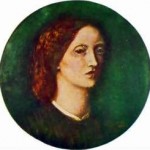
Elizabeth (Lizzie) Siddal
(1829-1862)
At Last
O mother, open the window wide
And let the daylight in;
The hills grow darker to my sight
And thoughts begin to swim.
And mother dear, take my young son,
(Since I was born of thee)
And care for all his little ways
And nurse him on thy knee.
And mother, wash my pale pale hands
And then bind up my feet;
My body may no longer rest
Out of its winding sheet.
And mother dear, take a sapling twig
And green grass newly mown,
And lay them on my empty bed
That my sorrow be not known.
And mother, find three berries red
And pluck them from the stalk,
And burn them at the first cockcrow
That my spirit may not walk.
And mother dear, break a willow wand,
And if the sap be even,
Then save it for sweet Robert’s sake
And he’ ll know my sou’s in heaven.
And mother, when the big tears fall,
(And fall, God knows, they may)
Tell him I died of my great love
And my dying heart was gay.
And mother dear, when the sun has set
And the pale kirk grass waves,
Then carry me through the dim twilight
And hide me among the graves.
Elizabeth (Lizzie) Siddal poems
fleursdumal.nl magazine
More in: Archive S-T, Lizzy Siddal, Siddal, Lizzy

Arthur Rimbaud
(1854-1891)
Bottom
La réalité étant trop épineuse pour mon grand caractère, — je me trouvai néanmoins chez ma dame, en gros oiseau gris bleu s’essorant vers les moulures du plafond et traînant l’aile dans les ombres de la soirée.
Je fus, au pied du baldaquin supportant ses bijoux adorés et ses chefs-d’œuvre physiques, un gros ours aux gencives violettes et au poil chenu de chagrin, les yeux aux cristaux et aux argents des consoles.
Tout se fit ombre et aquarium ardent. Au matin, — aube de juin batailleuse, — je courus aux champs, âne, claironnant et brandissant mon grief, jusqu’à ce que les Sabines de la banlieue vinrent se jeter à mon poitrail.
Arthur Rimbaud poetry
fleursdumal.nl magazine
More in: Archive Q-R, Arthur Rimbaud, Rimbaud, Arthur, Rimbaud, Arthur
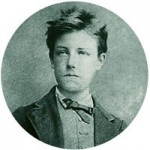
Arthur Rimbaud
(1854-1891)
Démocratie
« Le drapeau va au paysage immonde, et notre patois étouffe le tambour.
« Aux centres nous alimenterons la plus cynique prostitution. Nous massacrerons les révoltes logiques.
« Aux pays poivrés et détrempés ! — au service des plus monstrueuses exploitations industrielles ou militaires.
« Au revoir ici, n’importe où. Conscrits du bon vouloir, nous aurons la philosophie féroce ; ignorants pour la science, roués pour le confort ; la crevaison pour le monde qui va. C’est la vraie marche. En avant, route ! »
Arthur Rimbaud poetry
fleursdumal.nl magazine
More in: Archive Q-R, Arthur Rimbaud, Rimbaud, Arthur, Rimbaud, Arthur
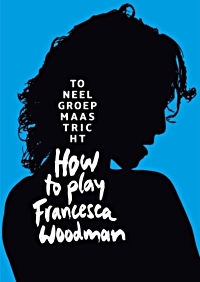 Regisseur Arie de Mol maakte een intieme en fysieke voorstelling met tekst, beweging, muziek en projectie, gebaseerd op het leven en werk van de Amerikaanse fotografe Francesca Woodman. Vier jonge actrices duiken in de rijke gedachtewereld van deze opmerkelijke kunstenares. Speciaal voor dit project schreven Anne Vegter (Dichter des Vaderlands) en Erik-Ward Geerlings (o.a. Mephisto, Decamerone) samen een nieuwe toneeltekst.
Regisseur Arie de Mol maakte een intieme en fysieke voorstelling met tekst, beweging, muziek en projectie, gebaseerd op het leven en werk van de Amerikaanse fotografe Francesca Woodman. Vier jonge actrices duiken in de rijke gedachtewereld van deze opmerkelijke kunstenares. Speciaal voor dit project schreven Anne Vegter (Dichter des Vaderlands) en Erik-Ward Geerlings (o.a. Mephisto, Decamerone) samen een nieuwe toneeltekst.
Francesca Woodman (1958-1981) maakte in haar korte leven vele honderden prachtige foto’s, die inmiddels tot cultstatus zijn verheven. Met haar werk schiep zij een geheel eigen universum: indringend, theatraal en vol magie. Opgroeiend in een kunstenaarsgezin werd Woodman het creëren met de paplepel ingegoten. Het streven naar vernieuwing, erkenning en succes werd voor haar gaandeweg een dwingende noodzaak. Op 22-jarige leeftijd maakte zij een einde aan haar leven. Francesca Woodman liet meer dan 800 negatieven achter, een verscheurde familie en de vraag: waarom?
Toneelgroep Maastricht
How to play Francesca Woodman
concept en regie: Arie de Mol
Over een jonge fotografe met een onnavolgbaar talent
In How to play Francesca Woodman verdiepen de vier actrices zich in de vragen, twijfels en verlangens van deze talentvolle jonge vrouw. Zelf levend in een tijd die wordt beheerst door prestatiedrang en de zucht naar perfectie.
De voorstelling ging in première op zaterdag 15 maart 2014 in Theater de Bordenhal in Maastricht, en was hier te zien van 12 maart t/m 6 april 2014.
Nu gaat de voorstelling op tournee door Nederland.
# Zie de speellijst op de website van TONEELGROEP MAASTICHT
fleursdumal.nl magazine
More in: Art & Literature News, Francesca Woodman, Francesca Woodman, THEATRE
 On 24th January 2015 Shaimaa el-Sabbagh, a poet and a member of the Socialist Popular Alliance Party, was marching to commemorate the hundreds of demonstrators that were killed during the Arab Spring uprising of 2011.
On 24th January 2015 Shaimaa el-Sabbagh, a poet and a member of the Socialist Popular Alliance Party, was marching to commemorate the hundreds of demonstrators that were killed during the Arab Spring uprising of 2011.
Shaimaa el-Sabbagh was shot in the back by riot police officers, while heading to Tahrir Square in Cairo to lay flowers there.
The Alliance Party said in a statement, that their only intention was to place flowers for of the fourth anniversary of the Jan. 25 revolution. Other demonstrators were also injured in the same demonstration.
Egyptian Government officials denied that the police had fired any shots.
At Sunday the funeral of the 31-year-old mother and poet, held in Alexandria, was attended by nearly 10,000 people.
 I am the girl banned from love in the squares …
I am the girl banned from love in the squares …
I stood in the middle of the street
and gathered in my hand the stars of the sky individually
And the sweat of the street vendors.
The voice of beggars
And the people who love God
as they damn this moment where the creatures of God approved
To crucifying Jesus naked in the crowded square
on the clock arms as it declared one at noon
I am the girl banned from saying no,
will never miss the dawn
Shaimaa al-Sabbagh
(From the poem: I’m the girl banned from attending the Christian religion classes, and Sunday mass. Translation by Maged Zaher)
# See Twitter Account Shaimaa el-Sabbagh
# Poems (in English) of Shaimaa el-Sabbagh on website: TIN HOUSE
fleursdumal.nl magazine
More in: - Archive Tombeau de la jeunesse, In Memoriam, REPRESSION OF WRITERS, JOURNALISTS & ARTISTS
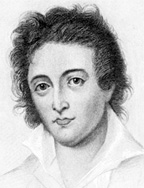
Percy Bysshe Shelley
(1792-1822)
Ozymandias of Egypt
I met a traveller from an antique land
Who said: Two vast and trunkless legs of stone
Stand in the desert… Near them, on the sand,
Half sunk, a shatter’d visage lies, whose frown,
And wrinkled lip, and sneer of cold command,
Tell that its sculptor well those passions read
Which yet survive, stamped on those lifeless things,
The hand that mocked them, and the heart that fed:
And on the pedestal these words appear:
“My name is Ozymandias, king of kings:
Look on my works, ye Mighty, and despair!”
Nothing beside remains. Round the decay
Of that colossal wreck, boundless and bare
The lone and level sands stretch far away.
Percy Bysshe Shelley
• fleursdumal.nl magazine
More in: Archive S-T, Archive S-T, Percy Byssche Shelley, Shelley, Percy Byssche
Thank you for reading Fleurs du Mal - magazine for art & literature